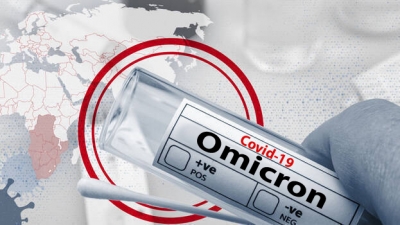
New Delhi, Nov 24: Omicron sub-lineage BQ.1.1, currently on the rise worldwide, is resistant to all approved antibody therapies, a new Lancet study led by an Indian-origin researcher has revealed.
The researchers found that the Omicron subvariant BQ.1.1 could not be neutralised by either individual antibodies or antibody cocktails.
“In total, we tested 12 individual antibodies, six of which are approved for clinical use in Europe, and four antibody cocktails,” said Prerna Arora, lead author of the study published in The Lancet Infectious Diseases.
The team of researchers from the Infection Biology Unit at the German Primate Center, Leibniz Institute for Primate Research and the Division of Molecular Immunology at the Friedrich-Alexander-University Erlangen-Nurnberg investigated how efficiently approved antibody therapies inhibit the currently circulating Omicron subvariants.
“With high-risk patients in mind, we are very concerned about the Omicron subvariant BQ.1.1 being resistant to all approved antibody therapies,” said study leader Markus Hoffmann.
Particularly in regions where BQ.1.1 is widespread, physicians should not rely on antibody therapies alone when treating infected high-risk patients, “But should also consider administering other drugs such as paxlovid or molnupiravir,” Hoffmann added.
In contrast, the currently predominant Omicron subvariant BA.5 was still neutralised by one approved antibody and two approved antibody cocktails.
The finding that the Omicron subvariant BQ.1.1 is already resistant to a new antibody therapy that is about to be approved in the US highlights the importance of developing new antibody therapies against Covid-19.
“The ever-increasing development of antibody resistance of SARS-CoV-2 variants calls for the development of new antibody therapies that are specifically targeted to currently circulating and future viral variants. Ideally, they should target regions in the spike protein that have little potential for escape mutations,” noted Stefan Pohlmann, head of the Infection Biology Unit at the German Primate Center, Leibniz Institute for Primate Research.






